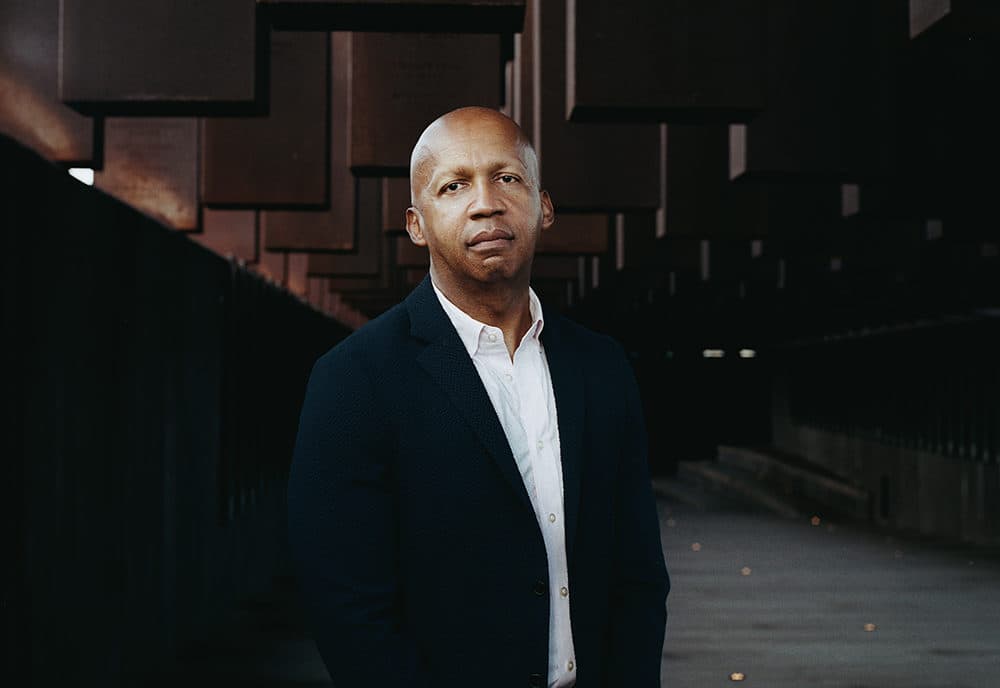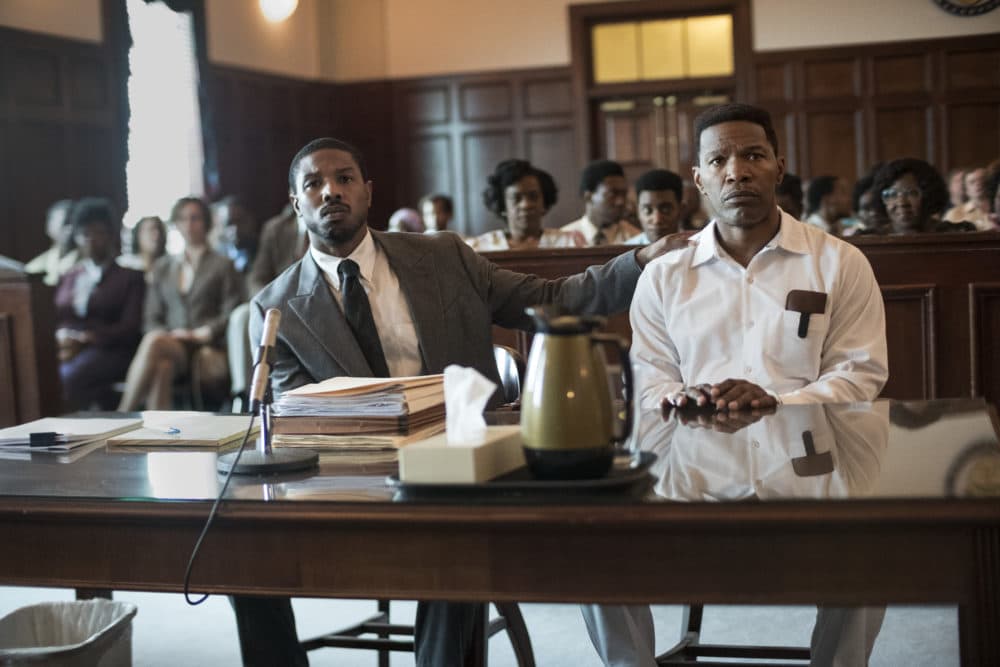Advertisement
'Slavery Doesn't End, It Just Evolves': Lawyer Portrayed In 'Just Mercy' Wants Film To Inspire Change

Bryan Stevenson, the crusading lawyer and founder of the Equal Justice Initiative, who has worked tirelessly for decades to reform the criminal justice system and defend those on death row, is about to become a household name thanks to Hollywood.
“Just Mercy,” a new film based on his memoir of the same name and for which he served as executive producer, is out Friday in theaters nationwide.
In the film, Jamie Foxx portrays the role of Walter McMillian, a black man from Alabama who is wrongly convicted of murder and sits on death row for six years. Michael B. Jordan plays the role of Stevenson as he moves to Alabama shortly after graduating Harvard Law School to defend those who might otherwise be scorned and forgotten — those sitting on death row. McMillian is one of Stevenson’s first clients.
The film follows Stevenson as he works to exonerate McMillian for the brutal death of a young woman. As the movie progresses, it becomes increasingly clear that McMillian did not commit the crime, and he was only successfully convicted due to a broken justice system rooted in a racist legacy of fear and intimidation.
Stevenson, ultimately, exonerates McMillian after years of working to prove his innocence despite facing threats to his organization and his own life.
The film offers a mere slice of Stevenson’s long career. He’s argued and won several cases in the U.S. Supreme Court, including banning mandatory life sentences to children 17 or younger, and together with his staff at the Equal Justice Initiative helped more than 135 wrongly condemned prisoners on death row.
But the film, as its title suggests, is more than a mere biopic. It’s a call to action for people to address the racial and economic inequities that undergird the criminal justice system and in so doing, practice both mercy and hope.
“Many people, most people in this country don’t want there to be inequality and injustice. They don’t want people to be treated unfairly or cruelly. I just think if you get closer to it, you’ll be motivated to say more, to do more,” Stevenson says. “I do hope people that see this film will walk away with a greater consciousness about why we need to do better in this country when it comes to creating a justice system that is fair and reliable.”

Interview Highlights
On why he decided to focus his memoir and film on Walter McMillian’s case
“When I was writing the book, it was just going to be one of maybe 20 or so cases that I talked about at length, but there was so much richness in the Walter McMillan case. I mean, first of all, the crime took place in Monroeville, Alabama, which is where Harper Lee grew up and is the setting of the fictional novel ‘To Kill a Mockingbird,’ and that community so embraces and romanticizes that story. It was surreal when I began working on this case to have a whole community directing me to go to the To Kill a Mockingbird Bird Museum, talking proudly about their relationship to that story while I was trying to get them to pay attention to the plight of an innocent black man who'd been wrongly accused of killing a young white woman. And I just thought there was a lot to explore in the case. Mr. McMillan was poor. He was a person of color. The people who convicted him, I think, had every reason to know that he was not guilty and yet he was convicted and sentenced to death anyway. They put him on death row before he had actually been tried or convicted of any crime. And there were just so many elements that exposed the way fear and anger has shaped our criminal justice policy making in this country.”
Advertisement
On addressing racist legacies, which have contributed to nearly 42% of death row inmates being black
“I think we do have to begin talking more honestly about our history of racial injustice. I don't think our country has ever engaged in any meaningful process of acknowledging the injustice, the inequality. I think we're a post-genocide society. What we did to Native people was a genocide, and we haven't acknowledged that. And we've allowed systems to continue that have been compromised by these narratives of racial difference. I think the great evil of slavery wasn't involuntary servitude. It was this idea that black people aren't as good as white people. And that continues after the 13th Amendment. That's why I've argued slavery doesn't end, it just evolves, and we had 100 years of terrorism and lynching and violence where black people were pulled out of their homes and beaten and murdered and drowned and tortured and lynched. And we've never really talked about that. And even though we pay more attention to the civil rights era, we haven't confronted the fact that this presumption of dangerousness and guilt that gets assigned to black and brown people is still with us. It's why these police encounters with young black people that end up with lethal violence are so disruptive and so painful.”
On the myth of exceptionalism and what drives him to keep fighting for reforms
“I always tell people that you can't do this kind of work. But just ideas in your mind to make a difference in this space, you've got to have the ideas in your mind fueled by conviction in your heart. And the great gift I have is that I am the great grandson of people who were enslaved and they believed in freedom when it wasn't rational to. And I'm the grandchild of people who were terrorized by lynching and they believed in a better future, even though that didn't seem logical. I'm the child of people humiliated by segregation and Jim Crow, and yet they believed I could be anything I want. And it's that orientation of hopefulness that has sustained me. We say in the film and I say when I give talks, ‘I believe that hopelessness is the enemy of justice.’ If you want to do justice work, you have to be prepared to believe things you haven't seen. And it's what continues to define the work I try to do today.”
On mercy in the justice system
“I've come to believe that each of us is more than the worst thing we've ever done. I don't think that if someone tells a lie, they're just a liar. I don't think if you take something, you're just a thief. I think even if you kill someone, you're not just a killer. And justice requires that we understand the other things you are.
“I believe in holding people accountable. It's not that I'm opposed to punishment, but I don't think we can reduce people to one act, because, I think, ultimately issues like the death penalty can't be resolved by asking, ‘Do people deserve to die for the crimes they've committed?’ I think the threshold question is, ‘Do we deserve to kill?’”
Cristina Kim produced and edited this interview for broadcast with Kathleen McKenna. Kim also adapted it for the web.
This segment aired on January 10, 2020.
